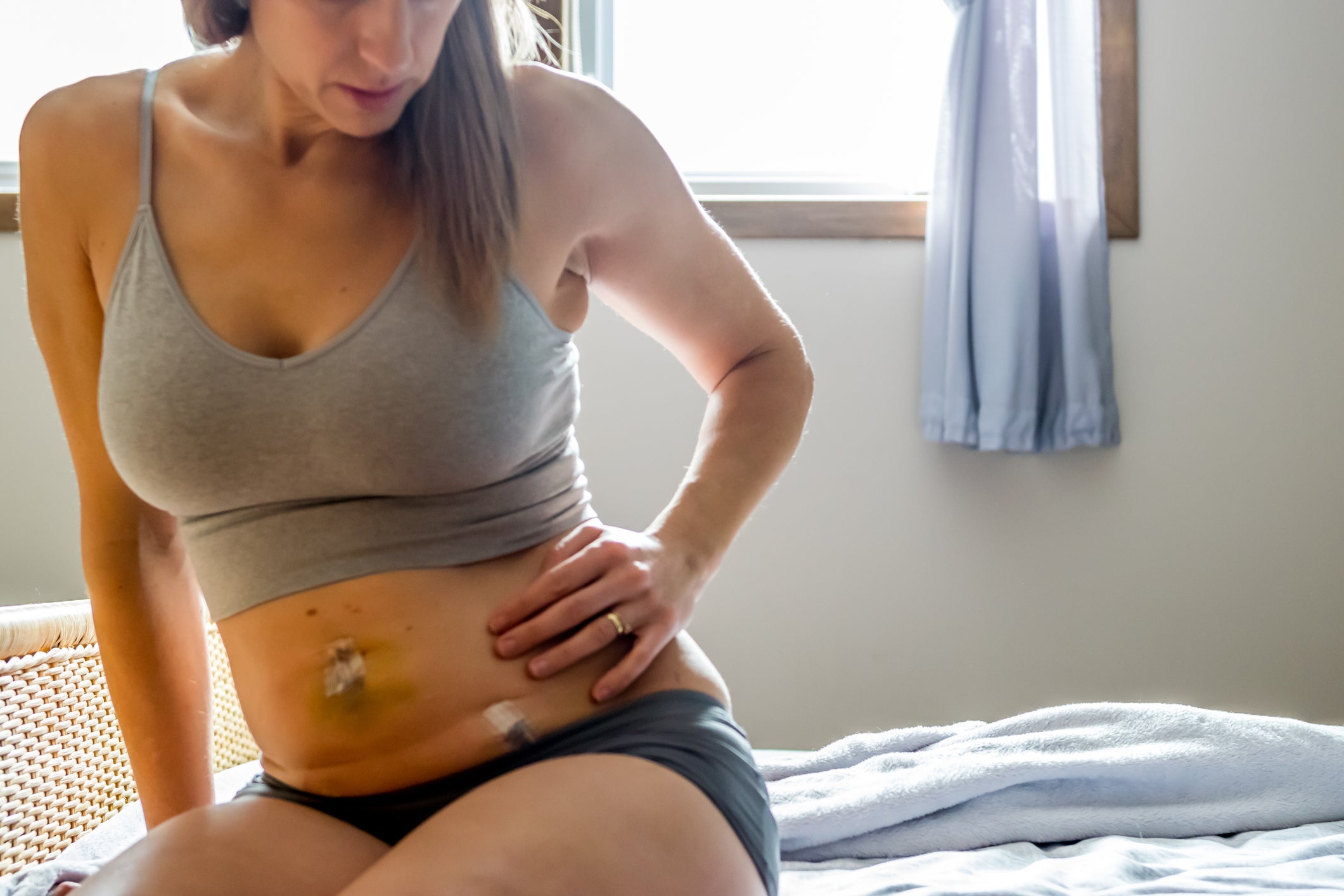World Cancer Day: Six most common cancers for women and the symptoms to look out for
Smoking is the largest single preventable cause of cancer each year in the UK
More than 166,000 people die of cancer each year, and one in two people who were born after 1960 will be diagnosed with the disease in their lifetime, according to Cancer Research,
Thursday 4 February is World Cancer Day, an international day of awareness led by the Union for International Cancer Control (UICC).
The day was established in 2000, with the aim of reducing preventable cancer deaths by raising awareness, improving education and urging governments to take action.
According to Cancer Research, smoking is the largest single preventable cause of cancer each year in the UK, and 38 per cent of cancer cases are preventable.
The NHS states that there is “strong evidence” that regular exercise can lower the risk of developing cancer, along with a low-fat, high-fibre diet.
For women in the UK, the most common cancers are, in order, breast, lung, bowel, uterus, melanoma skin, and ovarian cancer.
Awareness of symptoms is important as patients diagnosed at an early stage are more likely to survive because different treatment options are available for them.
We’ve consulted the experts to find out more about how you can check your body for signs and symptoms of these specific cancers to keep safe and well.
Breast cancer
Breast cancer is the most common form of cancer for women in the UK, with around 5,000 women under the age of 55 receiving a diagnosis every year, although it is more common among older women.
According to Cancer Research, one in seven women in the UK will develop breast cancer during their lifetime.
Despite this, a large number of women don’t check their breasts regularly for changes. A 2019 study by Bupa and HCA Healthcare UK revealed that one in four women admit they have never examined their breasts or can’t remember the last time they did.
Before you start thinking about signs and symptoms of breast cancer, it’s important to get to know your own breasts and how they usually look and feel. That way, you can spot any changes and report them to your GP quickly.
This guide provides step-by-step advice on how, when and what you should be looking for when you check your breasts. Symptoms to look out for include new lumps, a change in size or shapes and a rash on or around your nipple.
While there is no specific number of times you should be checking your breasts, breast cancer charity CoppaFeel! suggests doing so at least once a month.
The NHS states that lots of women have breast lumps and that nine out of 10 are not cancerous.
Despite this, unusual changes in your breast should be checked out with a GP as soon as possible.
Lung cancer

Lung cancer is the second most common form of cancer for women.
Studies by Cancer Research reveal that 79 per cent of cases are preventable with almost three quarters (72 per cent) caused by smoking.
A further eight per cent of cases are a result of air pollution.
Julia Ross, head of cancer care at Bupa UK, tells The Independent that lung cancer can often go unnoticed as many patients do not initially experience symptoms.
“The most common sign is a persistent cough that gets worse over time and/or coughing up blood or rust-coloured sputum (spit),” she said.
“Other common symptoms to be aware of include chest pain that is often worse with deep breathing, recurrent chest infections, tiredness, or unexplained weight loss.”
More unusual signs to watch out for include swelling in the face or neck, hoarseness and swollen finger tips (known as ‘clubbing’).
Ross notes that it can be hard to remember all these symptoms and encourages people to check for changes, unexplained or persistent issues.
Ovarian cancer

According to the NHS, ovarian cancer mainly affects women who have been through the menopause (usually aged 50 and older), but it can sometimes affect younger women.
“The most common symptoms of ovarian cancer are bloating, pelvic or abdominal pain, trouble eating or feeling full quickly, and changes in urinary habits (such as needing to wee a lot or having to go often)”, Dr Shirin Lakhani, cosmetic doctor and intimate health specialist at The Cranley Clinic on Harley Street, tells The Independent.
Other symptoms include extreme tiredness, back pain, constipation or pain during sex.
She continues: “It’s important to remember that these symptoms are often caused by benign diseases but when they are caused by ovarian cancer they tend to be persistent and are more often or severe.”
Dr Lakhani adds that early cancer of the ovaries often has no symptoms, so it’s vital to get prompt medical attention as early treatment may improve the odds of a diagnosis and successful treatment.
“Research has shown that certain factors may reduce your risk of getting ovarian cancer,” she says.
“These include oral contraceptives, breastfeeding and pregnancy, and hysterectomy.”
A family history of ovarian cancer may also increase your risk.
Melanoma skin cancer

Melanoma skin cancer is the fifth most common cancer for women. According to Cancer Research, 86 per cent of cases are preventable.
Over the last decade, the rate of women being diagnosed with melanoma skin cancer has increased by more than a third (35 per cent).
Dr Ross Perry, skin cancer expert and medical director of CosmedicsUK, warns people of the damage the sun can do to skin and advises everyone to wear SPF all year round – even on cloudy days.
“Sun exposure is a known factor for increasing the risk of skin cancer and even the British sun can, over time, accumulate and cause sun damage,” he tells The Independent.
“Getting a tan – especially sunburn – increases the risk of sun damage and in turn skin cancer. It’s a personal choice but having a tan that only lasts a week versus the risk of cancer: is it really worth it?"
He continues: “No tan is a safe tan and these days fake tan is so realistic and safe that it’s better to look bronzed from a bottle than via the sun.”
Dr Perry advises people to frequently check their skin for irregularities which could be a sign of early skin cancer.
“Things to look out for are a mole or growth which is new or an existing one that has changed in size, shape, feel or colour, along with any itching, tenderness, crusting or bleeding,” he says.
“Seventy per cent of all melanomas are new moles, so it’s important to keep checking even if you don’t have any as one may develop.
As before, Dr Perry advises seeking medical attention if you’re unsure about changing or darker moles.
Bowel cancer

Bowel cancer is the third most common cancer for women. Almost half (54 per cent) of cases are preventable, according to Cancer Research.
Bowel cancer, otherwise known as colorectal cancer, affects the large bowel, Bowel Cancer UK states.
The large bowel, also known as the large intestine, is made up of your colon and rectum.
Symptoms of bowel cancer can include a change in your bowel habits, blood in your stools, weight loss, pain in your abdomen or back, fatigue and feeling as though you need to strain your back package, even after going to the toilet, Cancer Research UK outlines.
Cancer may also cause bowel obstruction, which is when passing stool or gas is either harder than usual or impossible.
When bowel obstruction occurs, you may experience cramping, bloating, constipation or nausea.
It's advised that you see your doctor or go to A&E immediately if you think you may have a bowel obstruction.
Uterine (womb) cancer

Cancer of the uterus or womb is the fourth most common cancer for women.
According to Cancer Research, factors that may increase your susceptibility to uterine cancer include being overweight, starting your period early, a late menopause and women with polycystic ovary syndrome (PCOS).
Studies show that having children reduces uterine cancer by a third and that the risk decreases with the more children a woman has.
The most common symptom of uterine cancer is abnormal bleeding from the vagina, particularly in women who have stopped having periods (post-menopausal women).
This can be bleeding that is unusually heavy or that happens between periods and/or vaginal discharge.
Fortunately, 90 per cent of uterine cancers are picked up early due to post-menopausal or irregular vaginal bleeding, leading to early diagnoses.
Irregular bleeding is a common symptom of many other conditions, however, so it’s important to remember that only a small number of women with irregular bleeding will actually have womb cancer.
As before, it’s important to contact your GP as soon as possible if you experience any of the symptoms mentioned here.
Join our commenting forum
Join thought-provoking conversations, follow other Independent readers and see their replies
Comments
Bookmark popover
Removed from bookmarks